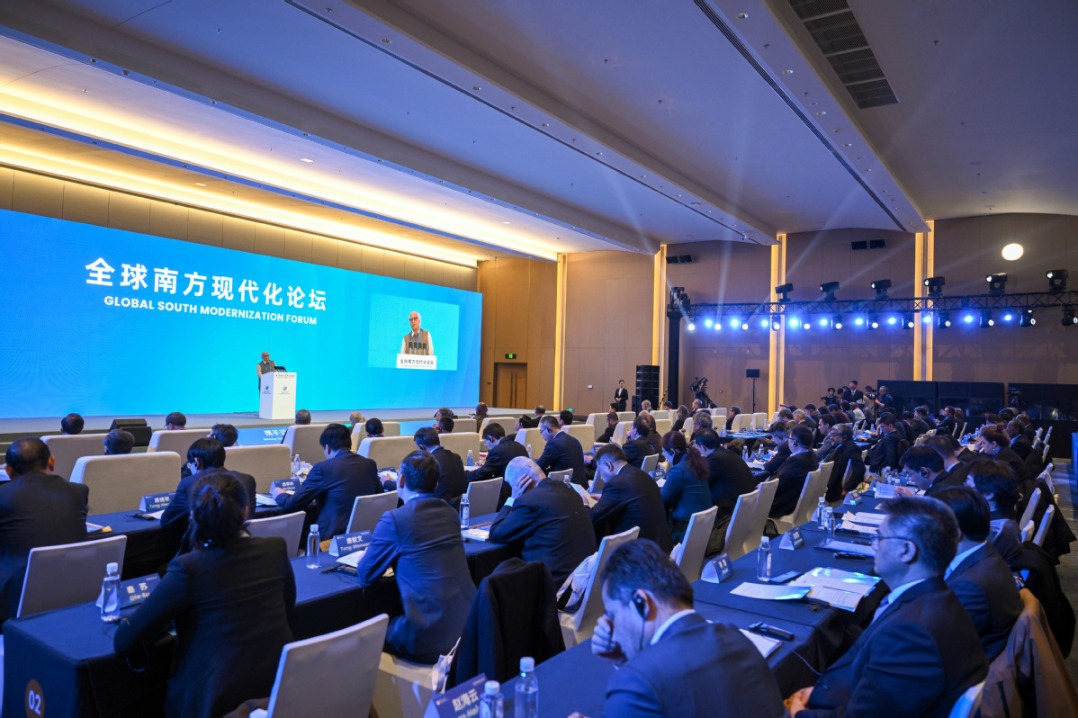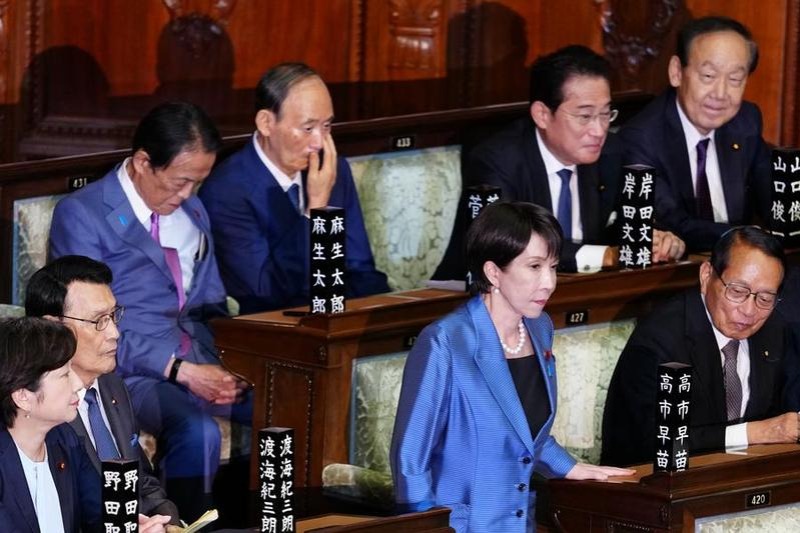Exemplary partnership of the Global South


China-Africa development cooperation will reach new heights in trade, productive investment, industrial chain collaboration and technological cooperation
Over the past 25 years, China-Africa development cooperation has reached significant milestones.
China and Africa have established a robust connection through the Forum on China-Africa Cooperation, one of the most successful South-South partnership platforms, built on their commitments and shared experiences. Both Africa and China share a common history as victims of brutal colonialism and in their struggles for independence. Peaceful coexistence, mutual respect, win-win cooperation and strategic partnership have guided their successful collaborations. Multilateralism has been the cornerstone of this flourishing partnership — a foundation for peace, development, expanding trade and economic cooperation, and collaboration on industrialization, transforming the lives of millions and advancing modernization and prosperity as the sovereign rights of nations.
China-Africa trade cooperation has been one of the most successful aspects of the partnership between the two sides. China-Africa trade increased from only $1 billion in 1990 to $10 billion in 2000 and reached a record level of nearly $300 billion in 2024, demonstrating remarkable growth and contributing to the diversification of Africa's external trade, thereby reducing exposure to global volatility. China is Africa's largest trading partner, and Africa has benefited from diversifying its international trade beyond traditional partners. This progress illustrates that it has greater opportunities to achieve new heights. However, obstacles to the rapid growth of trade cooperation still exist. The key limitation is Africa's ability to expand its exports on a large scale to ensure a consistent supply and enhance competitiveness. Through this joint partnership, these constraints can be effectively addressed. China's decision to grant import duty exemptions for over 98 percent of African exports, primarily from 33 least-developed countries, represents an important boost since 2024. A customs green lane has been created to facilitate imports from Africa, and experience sharing on customs and phytosanitary measures have been initiated. The China-Africa Economic and Trade Cooperation Expo is conducted every two years in Changsha, Hunan province, attracting thousands of African and Chinese businesses, with exhibitors from African countries promoting their products and investment opportunities.
In June 2025, China took a bold step by granting zero-tariff treatment to 100 percent of taxable products from all 53 African countries that maintain diplomatic relations with China. There is potential for a significantly larger trade volume between China and Africa, with an annual growth rate of about 10 percent in the coming years, which may surpass $300 billion by 2035. This is particularly symbolic at a time when the new administration in the United States has imposed universal tariffs ranging from 10 percent to 50 percent on many African countries since April 2, despite African countries experiencing a trade deficit with the US. African countries hope the US administration may reconsider this matter.
Africa does not need aid; rather, it requires partners who will cooperate in its growth agenda and establish a fair international governance system based on rules-based multilateralism. African governments are eager to partner with emerging and OECD countries, which presents mutual benefits and fosters a more stable and prosperous world.
As Africa's imports from China are growing faster than its exports to China, adding value will enhance the worth of African exports and create job opportunities, which are desperately needed on the continent. African countries must generate between 25 million and 30 million jobs annually. This situation also presents an opportunity for Chinese manufacturers and industrialists to invest in Africa and expand their market shares. African countries must reform their investment promotion institutions to foster an optimal business environment — not only for Chinese companies but for all productive investors, encompassing both foreign and domestic companies.
Development finance and infrastructure development exemplify another successful area of cooperation. Between 2000 and 2025, the Chinese government and financial institutions allocated approximately $190 billion to support Africa in developing and financing infrastructure and its industrial transformation. This development finance included concessional and commercial loans, along with grants primarily aimed at energy, transportation, telecommunications and industrial transformation. These projects have accelerated industrialization and enhanced international competitiveness. Innovative financing methods must be explored to help African countries overcome the limitations of development finance and connect with new alternatives, such as expanding renewable energy sources.
A crucial area for success is the inflow of Chinese foreign direct investment to Africa. Between 2000 and 2024, the total FDI stock is projected to reach $50 billion. China has emerged as one of the top five sources of FDI. However, there remains considerable potential to expand the scale of FDI inflows to Africa — particularly in the manufacturing sector. New FDI and corporate profits from existing investors represent a significant solution to the gap in development finance. There is a substantial appetite among Chinese companies to invest in Africa, and China, as the world's manufacturing powerhouse, is especially well suited to support African nations. African governments should implement significant reforms in their investment regimes, improve the tax system, create policy predictability and ensure peace alongside the rule of law. This ought to be prioritized. The influx of investment could quadruple the existing annual average of $2.5 billion with the right institutional conditions and an ambitious joint vision over the past 25 years. The sole path to creating jobs for millions of Africans lies in accelerating industrialization, expanding exports and achieving economic transformation through fostering productive investment. Additionally, Chinese investors and developers should prioritize establishing industrial parks that utilize renewable energy across various African countries, serving as a catalyst for the development of industrial ecosystems and supply chains. Learning lessons from China, Singapore, and other members of the Association of Southeast Asian Nations would be advantageous.
China-Africa development cooperation will attain new heights in trade, productive investment, industrial chain collaboration and technological partnership. It will serve as an exemplary model of Global South cooperation, championing multilateralism, common prosperity and peace, as well as fostering dialogue among civilizations.
The author is former senior minister and special adviser to the prime minister of Ethiopia. The author contributed this article to China Watch, a think tank powered by China Daily.
Contact the editor at editor@chinawatch.cn.


































